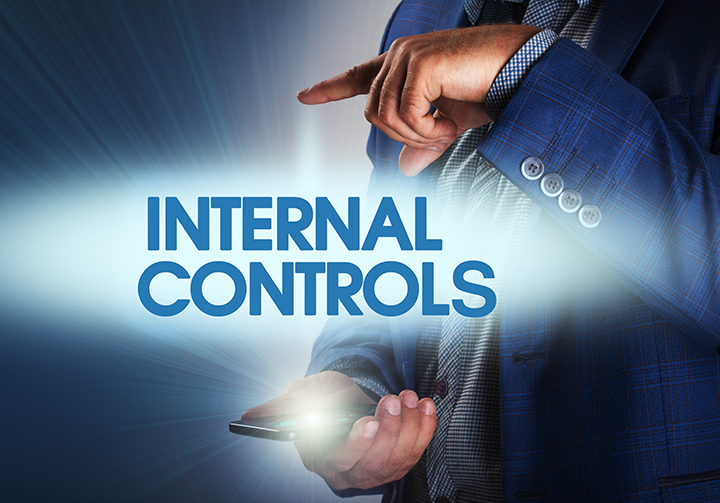
Internal Controls
What are Internal Controls and why are they important?
Internal control is defined as a process, effected by an entity’s board of directors, management, and other personnel, designed to provide reasonable assurance regarding the achievement of objectives relating to operations, reporting, and compliance.
Internal controls are the policies and procedures management establish to achieve the following goals:
- Safeguard assets – well designed internal controls protect assets from accidental loss or loss due to fraud.
- Ensure reliability and integrity of financial information – Provide management with accurate, timely and complete financial information, including accounting records, used to plan, monitor, and report operations.
- Ensure compliance – internal controls help ensure that the organization stays in compliance with federal, state, and local laws and regulations.
- Encourage efficient and effective operations – internal controls provide an environment that management and staff can maximize efficient and effective processes in their operations.
- Accomplish goals and objectives – management can monitor performance and provide guidance to help achieve goals and objectives.
Internal Control Framework
There are five components of internal controls to consider when developing an effective and efficient framework.
- Control Environment – an effective control environment is created by management through communication, attitude, and leadership. The focus should be on integrity, commitment to investigating discrepancies, designing proper systems, and assigning responsibilities.
- Risk Assessment – identify areas that are susceptible to high levels of risk for inaccuracies and or losses. Areas with the greatest risks should receive the most amount of effort and level of control.
- Control Activities – policies and procedures that occur within the internal control system. Most control activities fit into two types of activities, preventative and detective. Preventative control activities are established to prevent instances of error or fraud. They require a well thought out process and risk identification. Detective control activities identify the occurrence of errors or fraud after the fact. Most detective controls include a form of reconciliation.
- Information & Communication – providing accurate information and communicating responsibilities and expectations is important to develop a strong internal control system.
- Monitoring – internal controls is not something that is created once and then it is finished, they should be reviewed periodically and modified as the organization grows. Management should monitor that internal control activities do not become obsolete or lost due to turnover or other factors.
Responsibility
Management is responsible for maintaining an adequate system of internal control. Expectations and job duties should be properly communicated to staff as part of a control environment. Management is also responsible for the other major areas of an internal control framework.
Staff and other operating personnel are responsible for adhering to the internal controls set forth by management.
Internal Control Best Practices
While internal controls may vary depending on the size and structure of each organization, here are a few control activities to keep in mind when developing internal controls for your organization:
- Timely review and update the financial policy and procedures manual.
- Regularly communicate reminders and updates of policy and procedures to staff with emails, meetings, and other methods of communication.
- Separate duties by department or individuals within departments so that mistakes, intentional or unintentional cannot be made without being discovered by another person.
- Assets and records should be kept secure at all times to prevent unauthorized access, loss, or damage.
- Establish authorizations within the various stages of a transaction. These stages include Recording (initiate, submit, process), Approving (pre-approval, post entry review), and Reconciliation.
Need some assistance?
Contact us!
- Kaitlin Svatek, Finance Director at ksvatek@charterschoolsuccess.com
Still have questions?
Visit the Charter School Community Roundtable to ask questions and discuss this topic.
